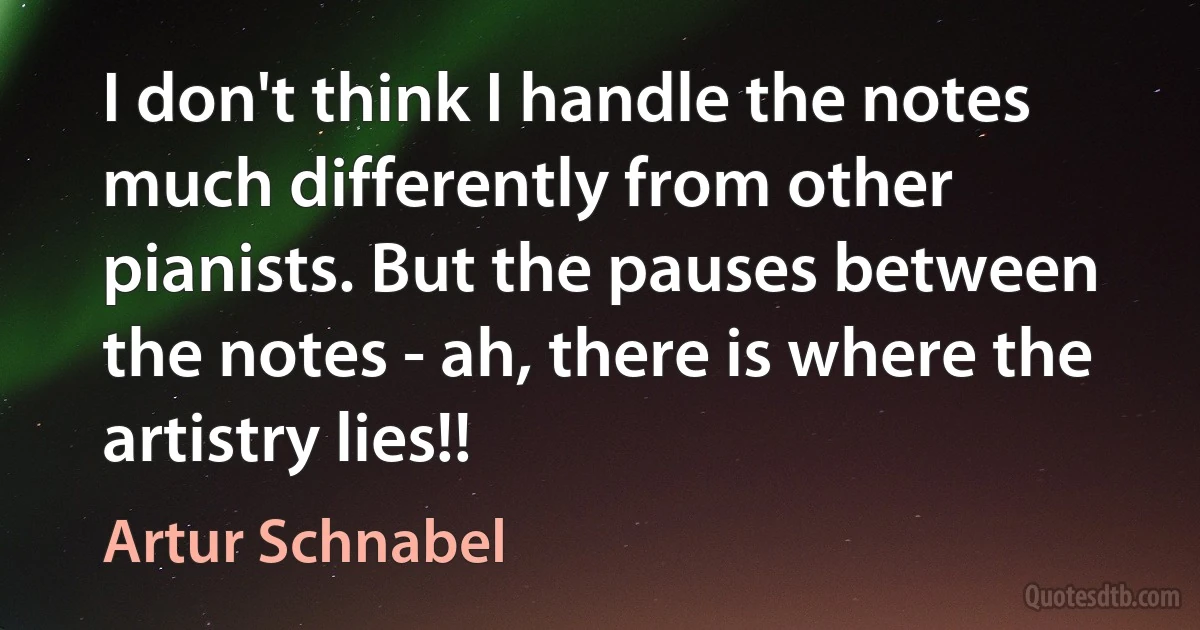Notes Quotes - page 19
Z-relation, or rather, "that certain pitch-class collections share the same 'interval vector' even though they are neither transpositionally nor inversionally equivalent was first pointed out by Howard Hanson in Harmonic Materials of Modern Music (New York: Appleton-Century-Crofts, 1960), p. 22, and by David Lewin in "Re: The Intervallic Content of a Collection of Notes," Journal of Music Theory 4:1 (1960). For a general criticism of Forte's concepts of pitch-class set equivalence see Perle, "Pitch-Class Set Analysis: An Evaluation," Journal of Musicology 8:2 (1990).

George Perle
On the last Sunday in September in smoggy Los Angeles, announcer Vin Scully riffed through some notes as Willie McCovey came to bat for the last time that season before the Chavez Ravine folks. "Let's see," said Scully, "no home runs since September 11. . . .Well, it's been a long season. McCovey's got to be tired. Big as he is, he's probably worn out." So Scully was looking down at his papers when he heard the familiar crack. Worn-out Willie had just driven the ball over the right field fence, over the bullpen, and into Glendale. Scully did not see the pitch McCovey hit. It had been a palm ball lobbed up by Pete Mikkelson, the kind of pitch that floats up like a dead flounder, and usually goes about as far as dead flounders fly when you hit one. If you hit one. This one traveled a couple of miles or more, and Willie McCovey had home run number 45, to break his tie with Hank Aaron and win for McCovey his second consecutive National League home-run title.

Arnold Hano
From harmony, from heavenly harmony,
This universal frame began:
When nature underneath a heap
Of jarring atoms lay,
And could not heave her head,
The tuneful voice was heard from high,
'Arise, ye more than dead!'
Then cold, and hot, and moist, and dry,
In order to their stations leap,
And Music's power obey.
From harmony, from heavenly harmony,
This universal frame began:
From harmony to harmony
Through all the compass of the notes it ran,
The diapason closing full in Man.

John Dryden
After my husband died, I could not write much - I could not concentrate. I was too exhausted most of the time even to contemplate writing. But I did take notes - not for fiction, but for a journal, or diary, of this terrible time. I did not think that I would ever survive this interlude.

Joyce Carol Oates
'A Fair Maiden' existed in notes and sketches for perhaps a year. When I traveled, I would take along with me my folder of notes - 'ideas for stories.' Eventually, I began to write it and wrote it fairly swiftly - in perhaps two months of fairly intense writing and rewriting. Most of my time writing is really re-writing.

Joyce Carol Oates
The genius of a composer is found in the notes of his music; but analyzing the notes will not reveal his genius. The poet's greatness is contained in his words; yet the study of his words will not disclose his inspiration. God reveals himself in creation; but scrutinize creation as minutely as you wish, you will not find God, any more than you will find the soul through careful examination of your body.

Anthony de Mello
...I remember as a child holding these long notes, so there's something that's already there. But I do think it's a constant question of knowing and taking care of yourself. It doesn't necessarily mean you can't have a tequila or a mezcal once in a while...In my case, it's very important to have it because through that you express the emotion you have from within. Sometimes that gives you some more secrets about how to handle your instruments.

Lila Downs
There be three speciall notes necessary to be obserued in the framing of our accustomed English Ryme. The first is, that one meeter or verse be aunswerable to an other, in equall number of feete or syllables, or proportionable to the tune whereby it is to be reade or measured. The seconde, to place the words in such sorte as none of them be wrested contrary to the naturall inclination or affectation of the same, or more truely the true quantity thereof. The thyrd, to make them fall together mutually in Ryme, that is, in wordes of like sounde, but so as the wordes be not disordered for the Rymes sake, nor the sence hindered.

William Webbe



